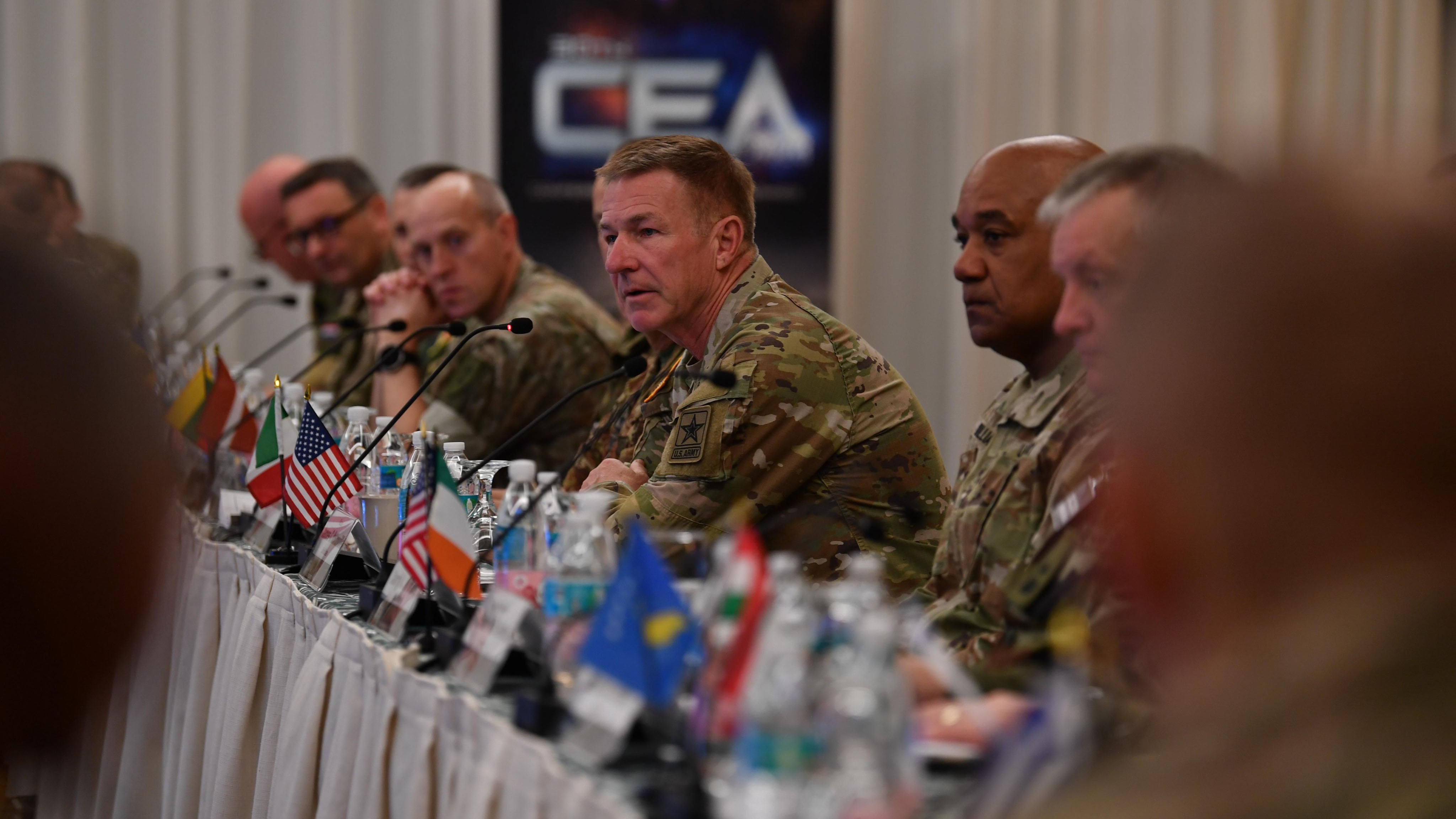McConville: US, European Allies ‘Stronger Together’
McConville: US, European Allies ‘Stronger Together’

As the war in Ukraine grinds on and emerging global threats persist, strong relationships with European allies and partners are more important now than ever, two senior U.S. Army leaders said at a summit of U.S. and European land force leaders.
“One of the biggest takeaways that I had was that they all understand that a regional conflict has global implications,” Army Chief of Staff Gen. James McConville said June 23 at the conclusion of the 30th annual Conference of European Armies held in Garmisch-Partenkirchen, Germany.
“That’s why it’s important that we stand together,” McConville said in a call with U.S. media. “We’re stronger together, and we all share the interests of having peace, security and freedom in Europe and, quite frankly, across the globe. All these friends, partners and allies share the same values and share the same interests.”
McConville, who was joined on the call by Gen. Darryl Williams, commander of U.S. Army Europe and Africa, said 12 new countries participated in this year’s conference. The event provided a forum for a robust conversation with the chiefs of Europe’s land forces about the war in Ukraine, training and sustaining a future combat force, integration and modernization.
Noting the U.S. Army’s largest transformation effort in more than 40 years, McConville said, “they certainly want to participate in that and this concept of convergence, about how we tie together our sensors and shooters and work together to get the effects we need on the battlefield.”
Most of the European land force leaders, he said, are “very interested in ensuring that we can do command and control operations together, and that we can pass data” effectively in theater, McConville said.
Gen. James Rainey, commander of Army Futures Command, who was part of the U.S. delegation, provided allies and partners with updates on the Army’s modernization efforts and held discussions on what could come into play in a multidomain conflict.
Williams, who took command of Army Europe and Africa in June 2022, said that training Ukrainian soldiers on U.S. weapons systems, such as the Patriot missile system and Abrams tanks, continues, and that the soldiers are learning fast. “The Ukrainians remain strong, they remain vigilant, they remain resilient in their way ahead,” Williams said.
The June 21–23 conference provided a chance for candid conversations in search of “common challenges, and, more importantly, common opportunities, which is very important now more than ever” against the backdrop of activities within NATO and Europe, Williams said.
In addition to the U.S., attendees included the actual or acting 33 chiefs of staff or land force commanders from Albania, Armenia, Belgium, Bulgaria, Canada, Croatia, Denmark, Estonia, Finland, France, Germany, Greece, Hungary, Italy, Kosovo, Latvia, Lithuania, Montenegro, the Netherlands, North Macedonia, Norway, Poland, Portugal, Romania, Slovakia, Slovenia, Spain, Sweden, Switzerland, Turkey, Ukraine and the United Kingdom.
There also were representatives from Austria, Bosnia and Herzegovina, Georgia, Ireland, Moldova and NATO.

